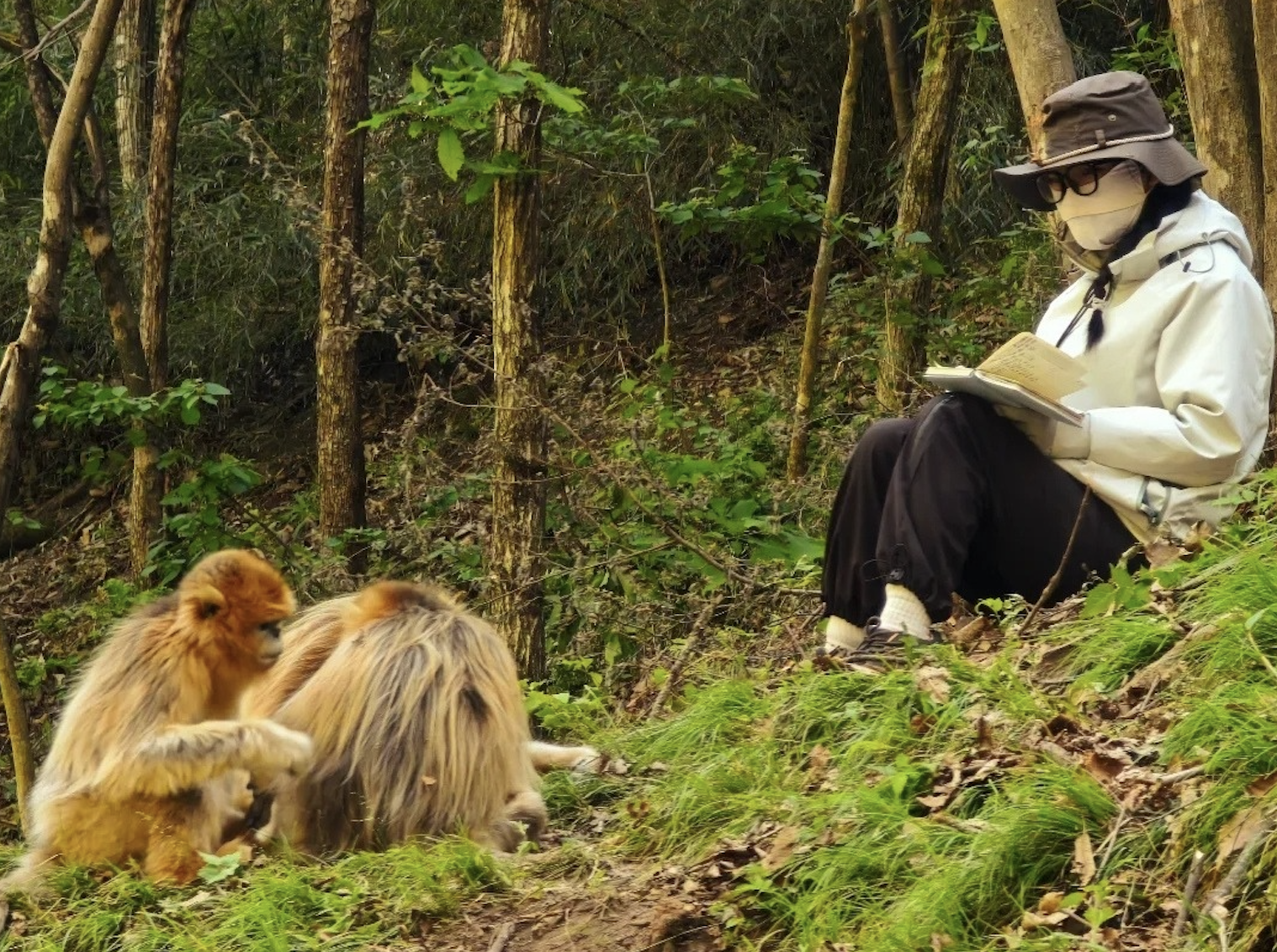A team of Chinese scientists from one of the nation’s oldest public universities has been using cutting-edge AI technology to protect endangered apes.
These researchers recently completed their latest data collection initiative at a scientific observation and research station in the Qinling Mountains, Shaanxi province. It was the latest activity that Northwest University’s College of Life Sciences team has undertaken in their three decades of primate research.
At the station, they gathered information on approximately 100 golden snub-nose monkeys from eight families. There are currently about 3,500 living within the Qinling Mountain Range.
Through the use of an AI-integrated facial recognition system, tracking the animals has become a much more convenient and non-invasive task than previous years. They can locate them with thermal imaging drones, set up camera traps in strategic locations and monitor each individual monkey without having to tag them or disturb their habitat.
This significantly minimizes stress that the creatures are subjected to for tracking purposes. Furthermore, the time saved by using AI to analyze vast image sets enables the Northwest team to focus on conservation efforts instead of manual identification.
The AI system helps maintain a detailed database of the population, which is essential for conservation planning.
According to lead professor Guo Songtao, their system has evolved from perceptual intelligence to cognitive intelligence, enabling it to procure more comprehensive data. It has gone from being able to analyze the physical anatomy of the monkeys to understanding their behaviours and patterns.
“By combining AI with their earlier ‘monkey face recognition’ tech, the team developed a system that can identify individual wild animals, track behaviours, and automatically report activity rhythms and time allocation,” the school specified in a social media post on Jun. 4.
The team has been using a facial recognition technology for about seven years, but recent advancements in artificial intelligence have elevated it to a whole new level. It has become a robust tool set.
In 2023, the team’s work was the subject of a documentary titled “China Qinling: Memories of a Golden Snub-nosed Monkey.” It was broadcast on CCTV. They have historically collaborated with the Shaanxi Academy of Sciences and Zhouzhi National Nature Reserve for their work.
They have also been using the artificial intelligence algorithm to monitor other protected species in the province like giant pandas, takins and crested ibis birds.
As AI continues to enhance conservation efforts, the pioneering work by Northwest serves as an admirable model for protecting endangered animals throughout the globe.
Read more: OpenAI gets US$2.91 every time ChatGPT is downloaded
Read more: AI-integrated toothbrushes are a thing now
Follow Rowan Dunne on LinkedIn
rowan@mugglehead.com














